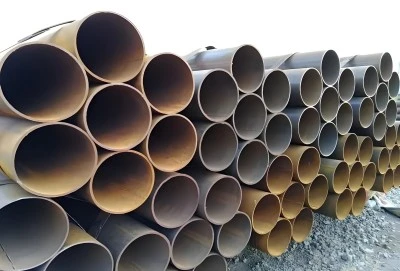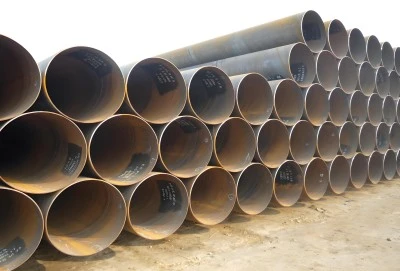Structural steel tubes play an essential role in various construction and engineering applications due to their strength, versatility, and durability. These tubes are engineered to meet stringent structural requirements, making them ideal for a broad range of purposes, including temporary constructions, roof frameworks, balcony structures, and railings. They are also favored in projects where high durability and resilience to environmental stress are critical. By understanding the numerous applications of structural steel tubing, industries can make informed decisions about material selection to improve both functionality and safety in their constructions. Structural steel tubes, therefore, serve as fundamental building blocks in infrastructure development worldwide.
|
|
|
Constructing Structures
Structural steel tubes are not only practical but also versatile, making them ideal for a wide array of temporary construction projects. Their portability and ease of installation render them perfect for creating temporary facilities such as emergency shelters, construction site offices, and even pop-up retail spaces. The modular nature of steel tubing allows for quick customization and expansion, accommodating changing needs without the hassle of traditional construction methods.
In addition to their load-bearing capabilities and lightweight properties, structural steel tubes are renowned for their sustainability. They can be easily deconstructed and repurposed, reducing waste and contributing to greener construction practices. This eco-friendly aspect is particularly appealing for projects with environmental considerations, as it aligns with the growing trend towards sustainable building solutions.
Furthermore, the use of structural steel tubes in temporary structures ensures safety and compliance with building codes. Their robustness and resistance to harsh weather conditions make them a preferred choice for temporary housing in disaster relief efforts, providing a secure and stable shelter for those in need. The adaptability of steel tubes also extends to their ability to be integrated with other materials, such as fabric or plastic sheeting, to create weather-resistant and insulated temporary structures.
Roof Construction Of Halls And Stadiums
The use of structural steel tubing in roofing applications is a testament to their versatility and resilience. These tubes are engineered to provide exceptional strength-to-weight ratios, which is crucial for large-scale facilities that require expansive, unobstructed spaces. The open design of halls, stadiums, and convention centers benefits greatly from the implementation of steel tubes, as they allow for large, clear spans that enhance visibility and maximize usable space without the need for intrusive internal columns or supports.
In the realm of roofing, steel tubes are instrumental in the construction of trusses and frames that can span vast distances, creating impressive architectural feats. These structures are not only visually striking but also highly functional, as they distribute weight evenly and resist deformation under heavy loads. Architects and engineers appreciate the precision and predictability of steel tubes, which can be precisely calculated to meet the specific demands of each project, ensuring that the final structure is both safe and aesthetically pleasing.
The durability of steel tubes is particularly evident in stadium construction, where the need for robustness is paramount. Steel frameworks support the weight of extensive roofing materials, such as metal panels or fabric membranes, and enable innovative design elements like retractable roofs that can adapt to varying weather conditions. These structures must withstand the test of time, enduring the elements while providing a safe environment for spectators. Steel's inherent resistance to corrosion and its ability to maintain integrity under wind, rain, and seismic stress make it an ideal material for such demanding applications.
Moreover, the modular nature of steel tubing offers a significant advantage in the realm of stadium design and construction. It allows for easy modifications and expansions, accommodating the evolving needs of sports and entertainment venues. This adaptability is crucial as stadiums often need to adapt to new technologies, increased seating capacities, or changes in the types of events they host. The ability to retrofit or expand existing structures without compromising the integrity of the roof is a significant benefit of using steel tubes.
In addition to their structural benefits, steel tubes also contribute to the sustainability of large facilities. They are highly recyclable, reducing the environmental impact of construction projects. Furthermore, the energy efficiency of steel-roofed buildings is enhanced due to the material's thermal properties, which can help regulate interior temperatures and reduce the reliance on artificial heating and cooling systems.
Making Balconies And Railings On Staircases
Structural steel tubes are widely used in the creation of balconies and railings, where they provide essential support and a sleek, modern aesthetic. Steel railings and balcony frames made from these tubes are sturdy enough to ensure safety while remaining visually unobtrusive. This is especially beneficial in modern architectural designs, where clean lines and open spaces are highly valued. Structural steel tubes can be customized in various shapes, sizes, and finishes to complement the design style of the building, from minimalist to industrial aesthetics.
In terms of durability, steel tubing is highly resistant to wear and corrosion, which is critical for railings and balconies that are exposed to weather elements. Unlike wood or other materials that may degrade over time, structural steel tubes maintain their integrity and appearance with minimal maintenance. Additionally, these tubes offer excellent load-bearing capacity, making them reliable for supporting the weight of people and objects on balconies. When used in staircase railings, steel tubes provide a secure handrail and protective barrier, enhancing safety while blending seamlessly with the architectural design. Whether in residential, commercial, or industrial buildings, steel tubing provides a combination of strength, durability, and aesthetic appeal for balcony and railing applications.
Steel Structural Tubing Manufacturer
LONGMA GROUP is a leading manufacturer specializing in large-diameter, thick-walled, double-sided, sub-arc-seam welding steel pipes. Their product line includes Longitudinal Submerged Arc Welded (LSAW) pipes and Electric Resistance Welded (ERW) pipes. By the end of 2023, LONGMA GROUP’s production capacity exceeded one million tons annually, underlining its dedication to high-quality steel manufacturing. Their steel structural tubing is meticulously crafted to meet international standards, ensuring durability, resilience, and superior performance in various applications.
The company's advanced manufacturing processes allow for the production of steel tubing that meets the demands of both large-scale infrastructure projects and specialized applications. With expertise in producing high-strength steel pipes, LONGMA GROUP provides materials that meet the rigorous requirements of construction, industrial, marine, and transportation projects. Their commitment to quality ensures that clients receive products capable of withstanding extreme conditions, whether for temporary constructions, permanent infrastructure, or complex architectural designs.
If you are choosing your steel structural tubing manufacturer, welcome to contact us at info@longma-group.com.














